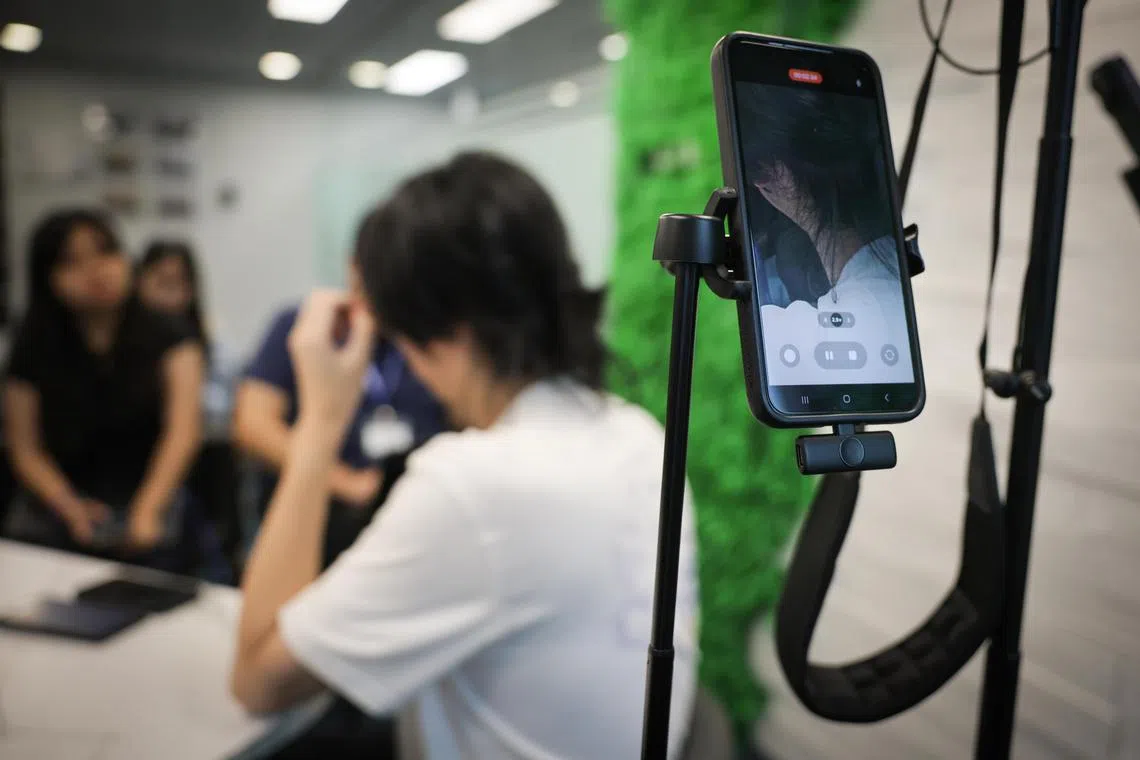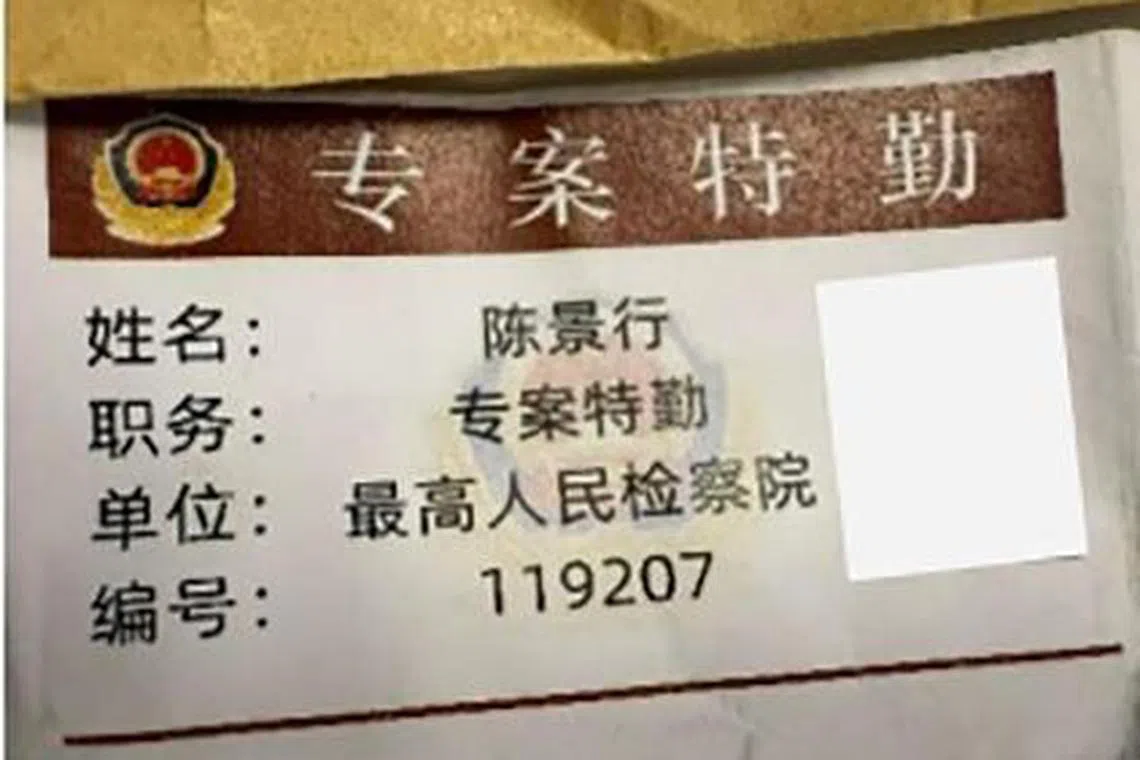Scam victim acts as bait to help police arrest runner at meetup location
Sign up now: Get ST's newsletters delivered to your inbox

Scam victim Mike Chen (not his real name) during an interview with the media arranged by the police on May 5.
ST PHOTO: GIN TAY
SINGAPORE – A 27-year-old acting as a runner for scammers was caught by the police, thanks to a victim who lured him out.
Mr Mike Chen (not his real name), 20, tipped off the police that he was meeting the runner in the western part of Singapore to hand him $30,000 in cash.
Police officers waited for the runner to turn up at the meeting point and apprehended him at about noon on April 9.
Mr Chen, an exchange student from China, was a victim of a government official impersonation scam.
In 2024, there were 1,504 reported cases of such scams
Scam victims in Singapore lost a record high of $1.1 billion in 2024.
Mr Chen told the media during an interview arranged by the police on May 5 that the scammer, who claimed to be an investigation officer from China, contacted him in February.
The man told Mr Chen that his bank card was linked to an international money laundering case, and accused him of being a “suspect” in the crime.
He instructed Mr Chen to turn on his laptop’s camera in his room every day so he could be monitored.
Mr Chen also had to update the scammer about his whereabouts via text message five times a day.
The surveillance went on for about a month before the scammer told him he could be bailed out for $70,000.
“The ‘investigation officer’ said he would be my bailor, but I had to have the money in my bank account,” said Mr Chen in Mandarin.
“I trusted him because I had been speaking to him every day for a month, and I felt like I had developed a relationship with him.”
To get the “bail” money, the scammer told Mr Chen to lie to his parents that he was being investigated by the local authorities for selling his personal details after losing his passport.
On April 9, Mr Chen received a phone call from the fake officer, who told him to withdraw the money from his bank account in two sums and hand it over to his “colleague” – the runner – who was based in Singapore.

A fake police ID (pictured) and $40,000 in cash were seized from the runner.
PHOTO: SINGAPORE POLICE FORCE

A fake police ID and $40,000 in cash (pictured) were seized from the runner.
PHOTO: SINGAPORE POLICE FORCE
Mr Chen met the runner in the western part of Singapore at about 11am and handed him $40,000.
He had to meet the same man at another location, and hand him the remaining $30,000.
But Mr Chen suspected something was amiss.
The scammer usually spoke to him quite sternly.
His tone changed after Mr Chen told him he had withdrawn the money from his bank account.
Said Mr Chen: “He sounded quite happy, and spoke to me informally. I also thought their method of making me give them cash was old-fashioned.”
Mr Chen confided in his classmate, who told him he had been duped.
Mr Chen asked his classmate to lodge a police report, while he headed to the second meetup location.
He said: “I wanted my money back, so I asked the police officers to wait there to arrest him.”
During the arrest, police officers seized $40,000 in cash and a fake police ID from the 27-year-old man, who is on a student’s pass.
Preliminary investigations showed he was a victim of the same type of scam, and had been manipulated into collecting money from other victims under the guise of assisting with official investigations.
He is being investigated for offences involving cheating and cheating by personation.
A police spokesman said that to avoid being an accomplice to crimes, members of the public should always reject requests by others to use their bank accounts or mobile lines, as they will be held accountable if these are linked to crimes.
The police said government officials will never request members of the public to make bank transfers, provide personal banking information, or click on links that lead to bank websites over the phone or through text messages.
The spokesman added: “Government officials from other countries do not have legal powers to require members of the public in Singapore to perform such actions.”

The public should contact the police if they are meeting a “Chinese government official” to hand him money or to receive and sign documents for bail or investigation purposes.
Those convicted of cheating can be jailed for up to 10 years and fined.
Those convicted of cheating by personation can be jailed for up to five years, fined, or both.
Said Mr Chen: “Although I didn’t get cheated, I’m worried the scammer will continue to harass me, or misuse my personal information.”
Claudia Tan is a journalist at The Straits Times covering the crime and court beat.
Additional reporting by Stacey Ngiam
Helplines and online resources
ScamShield helpline: 1799 scamshield.org.sg
Institute of Mental Health’s Mental Health Helpline: 6389-2222


